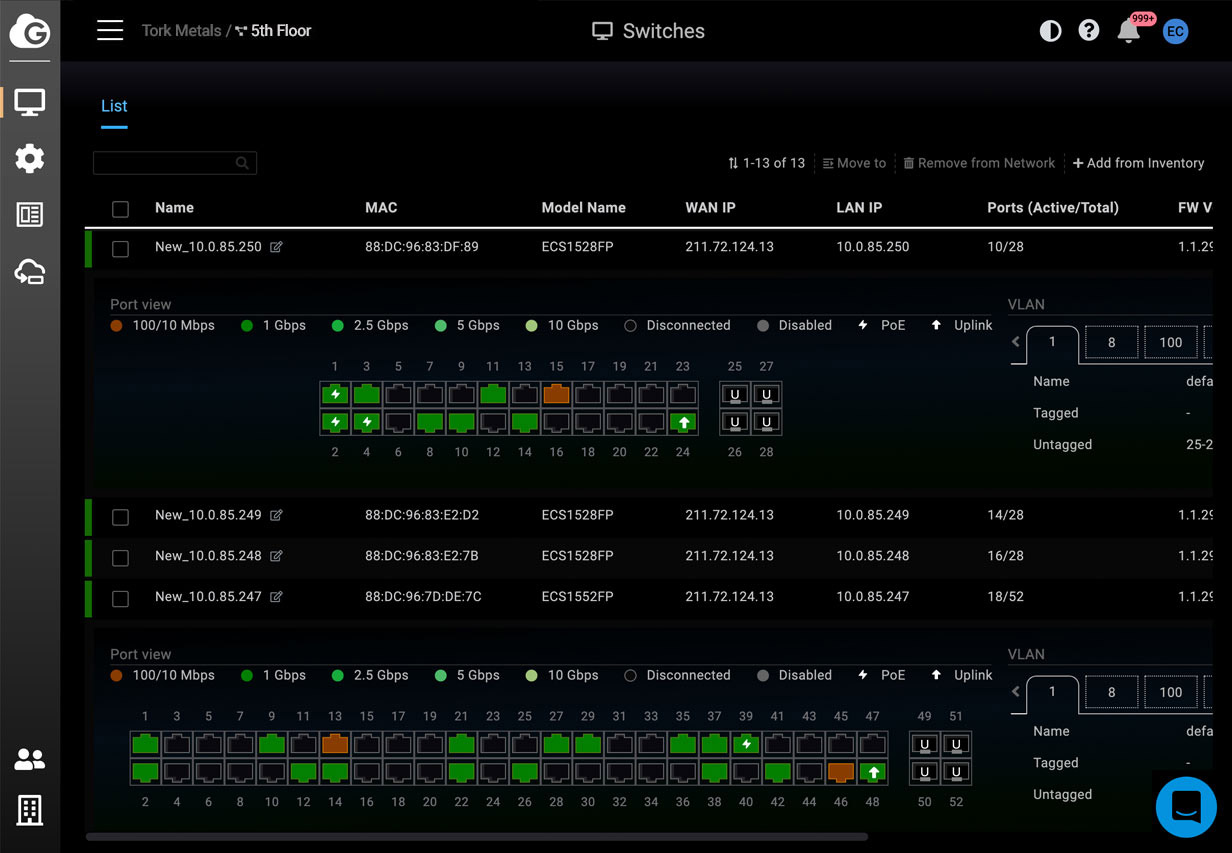In today’s interconnected world, where data flows seamlessly between devices and networks, the role of networking switches cannot be overstated. Whether it’s a small business, a large corporation, or even our everyday digitally connected lives, networking switches play a crucial role in creating efficient, secure, and scalable tech environments.
What is a Networking Switch?
A networking switch is a device that connects multiple devices within a network, enabling efficient data transmission and communication. Think of it as a central hub that directs data traffic, ensuring that information is sent to the correct destination quickly and reliably.
Enhanced Connectivity and Data Transfer
Networking switches are the backbone of any tech environment, facilitating seamless communication between various devices such as computers, servers, printers, and other networked devices. Using packet-switching technology, switches intelligently direct data packets to their intended destinations, ensuring speedy and reliable data transmission. This means improved connectivity, reduced latency, and enhanced productivity in business environments. Networking switches enable businesses to handle large volumes of data without sacrificing network performance, making them essential for data-intensive and cloud-enabled applications.
Segmentation and Network Security
Network segmentation, made possible by networking switches, enhances network security. By dividing a network into smaller, isolated segments, switches provide a layer of protection against unauthorized access and potential security breaches. This segregation prevents malicious actors from gaining access to sensitive data and resources. Switches often come equipped with features like Virtual LANs (VLANs) and Access Control Lists (ACLs), allowing network administrators to control and restrict access based on user privileges and network policies.
Scalability and Flexibility
Networking switches offer scalability and flexibility to adapt to the ever-evolving needs of businesses. They provide multiple ports to accommodate a growing number of devices, ensuring that the network infrastructure can quickly expand. Switches also support various network protocols and technologies, such as Ethernet, Fast Ethernet, Gigabit Ethernet, and even emerging technologies like 10 Gigabit Ethernet or Power over Ethernet (PoE). This flexibility enables businesses to seamlessly integrate new devices, applications, and technologies, keeping them ahead of the curve.

Improved Performance and Reliability
Networking switches eliminate network congestion and optimize data traffic flow, improving performance and reliability. This efficient data handling reduces latency and packet loss, ensuring critical data reaches its destination quickly and intact.
Networking switches form the backbone of modern tech environments, facilitating efficient data transfer, enhancing network security, enabling scalability, and boosting overall business performance. Businesses can create a resilient network infrastructure that supports their growth and innovation by investing in robust, reliable switches.
As technology evolves, networking switches will remain essential for businesses across industries, enabling them to adapt, connect, and thrive in the digital landscape. EnGenius switches are cloud-enabled and offer many of the features and benefits outlined in this blog. With EnGenius switches and the EnGenius Cloud, you can simplify your networking environment while improving security and performance. Understanding the significance of networking switches empowers businesses to make informed decisions, leverage their capabilities, and unlock new opportunities for success.
Learn more about the other benefits and features of the EnGenius Cloud!
